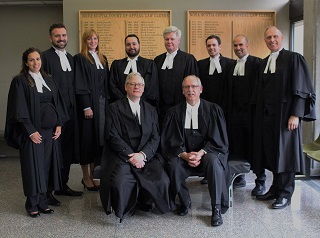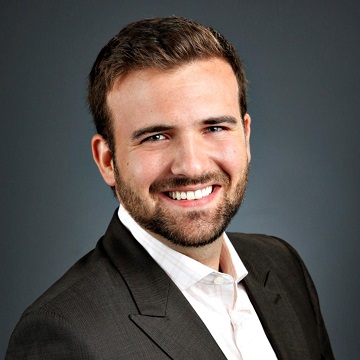The Christian Legal Fellowship National Conference will be held in the Vancouver area early this fall, bringing together lawyers, law students and others from across the country. While the event is, of course, mainly oriented towards those in the legal profession, Derek Ross – executive director of the Christian Legal Fellowship (CLF) – would like to invite a much wider range of participants: potential law students, pastors who want to be better versed on legal issues which might affect their congregations, lay people who encounter legal issues in their daily lives . . .
The theme of the conference, which will take place at Inn at the Quay in New Westminster September 22 – 25, is ‘Restoring the Gates: Building Integrity, Ousting Injustice,’ from the Book of Nehemiah.
Organizers point out:
The Book of Nehemiah depicts the way of recovery from brokenness to a condition of peace, security, restored order, justice and fruitfulness. Like the walls and gates around Jerusalem, the foundations of justice in Canada are in need of rebuilding and restoration. Much of what we hear in the news demonstrates the need of justice for the poor, the oppressed, the unborn, the elderly, the widow, the orphan and the refugee.
Following is Ross’s introduction to the June 2016 issue of the Christian Legal Journal; it is re-posted (slightly modified) by permission:
It is commonplace nowadays to read or hear the assertion that religion and human rights are fundamentally at odds with one another. Our culture is growing increasingly wary of religion, as it is seen as being in tension with ‘more important’ virtues such as equality.
This seems to be a growing sentiment amongst our judiciary as well, as perhaps best reflected in Madame Justice Abella’s comment in Loyola:
[E]quality, human rights and democracy are values the state always has a legitimate interest in promoting and protecting. . . . Religious freedom must therefore be understood in the context of a secular, multicultural and democratic society with a strong interest in protecting dignity and diversity, promoting equality and ensuring the vitality of a common belief in human rights.1
Of course, religious freedom is not absolute, and must be subject to appropriate limits. In order for democracy to work, we must agree to disagree on certain issues and live peacefully with our neighbours.
That is why Justice Dickson said [in 1985] that freedom of religion can be subject to “such limitations as are necessary to protect public safety, order, health or morals or the fundamental rights and freedoms of others.”2
But Abella J.’s comments suggest something of a departure from Dickson’s criteria. They seem to reflect an underlying uneasiness with religion and unwillingness to tolerate religious teachings that might appear inconsistent with the Court’s prevailing views on equality, diversity and human rights.
We must not forget, however, that religion is itself the foundation for our modern understanding of human rights. Our notion of equality, for example, is based on religious (namely Judeo-Christian) principles.
As noted legal philosopher Jeremy Waldron observes, “It may seem to us now that we can make do with a purely secular notion of human equality; but as a matter of ethical history, that notion has been shaped and fashioned on the basis of religion. That is where all the hard work was done.”3
The Christian religion is foundational to our notions of equality and human rights. The two are not mutually exclusive; rather one is a derivative of the other. As Waldron concludes, “I actually don’t think it is clear that we can shape and defend an adequate conception of basic human equality apart from some religious foundation.”4
1 Loyola High School v Quebec (Attorney General), 2015 SCC 12 at para 47, [2015] 1 SCR 613.
2 R v Big M Drug Mart Ltd. [1985] 1 SCR 295 at para 95, 18 DLR (4th) 321.
3 See Jeremy Waldron, God, Locke and Equality: Christian Foundations of John Locke’s Political Thought (New York: Cambridge University Press, 2002) at 242.
4 Ibid at 13.

Legal counsel for TWU and intervenors in support of its position – including members of the Christian Legal Fellowship – at the Nova Scotia Court of Appeal.
Articles in the June 2016 Christian Legal Journal include ‘What Morals Form the Foundations of Our Law?’ (Derek Ross); Reclaiming a Christian Voice in Human Rights Dialogue’ (John Sikkema); Putting the ‘Human’ back in ‘Human Rights’ (Jeffrey Ventrella); and ‘The New Moral Order’ (Douglas Farrow).
For information on the Christian Legal Fellowship National Conference go here.
On the morning of July 26, the Nova Scotia Court of Appeal decided in favour of Trinity Western University in the matter of ‘Trinity Western University (TWU) and the Nova Scotia Barristers Society (NSBS).’ The appeal court agreed with the lower court ruling that the NSBS does not have the statutory authority to reject TWU’s proposed law school based on the university’s Community Covenant. The CLF had appeared as an intervenor; for its comment on the decision go here.

